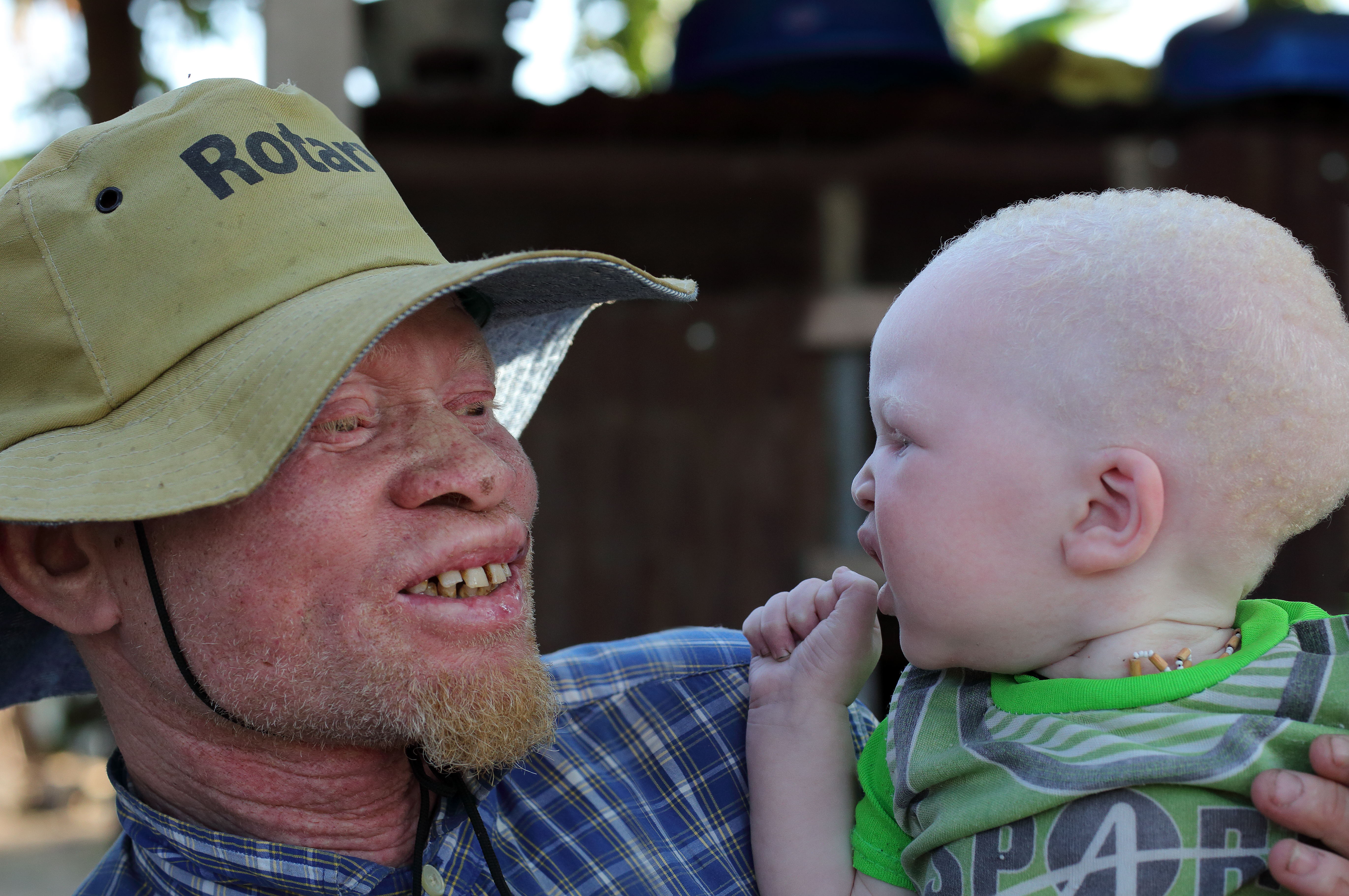Did you know?
People with albinism synthesize vitamin D five times faster than dark-skinned people. Since vitamin D is produced when
ultraviolet-B light enters the skin, the lack of pigmentation means light can enter more easily.
It is estimated that in Africa 1 in every 5000 people has albinism. This rate is even higher in Tanzania where 1 in every 1400 people has albinism. Albinism is a rare, non-contagious, genetically inherited condition occurring in both genders regardless of ethnicity, and in all countries of the world. The rare hereditary condition occurs when the body fails to produce enough melanin, which in turn affects the color of the skin, hair and eyes. Both parents must carry the gene for it to be passed on even if they do not have the gene themselves.
What Challenges do Persons with Albinism
(PWAs) Face?
There are many myths and superstitions surrounding PWAs, which has led to many of them being attacked and killed. In African countries where the general population has dark skin, hair and eyes, PWAs stand out making them easy targets for taunt and discrimination. In some parts of East Africa, witch doctors hunt them to harvest their body parts. In addition, Albino Women face the risk of being raped by HIV-positive men who falsely believe that having sex with them cures HIV. This has ended up infecting women with albinism with HIV.
Skin cancer is also common among persons with albinism in Sub-Saharan Africa, Most PWAs will die from skin cancer by the age of 40. The absence of melanin in their skin leaves them vulnerable to sun exposure, therefore basic health education is necessary on how they can protect themselves using sunscreen and sun-protective clothing.
Most PWAs are visually impaired and are classified as “Legally Blind”. Melanin is critical to the normal development of healthy eyes, therefore the reduced amounts lead to multiple eye defects such as; photophobia(inability to withstand glare and sun/light), foveal hypoplasia(Underdevelopment of the eye’s internal surface), and nystagmus(Involuntary eye movements resulting in reduced or limited vision).
In the education system, PWAs are often teased for their appearance and their low vision is not accommodated. This results in a high school drop-out rate, leaving most of them unskilled and unequipped for jobs. This leads them to do Menial Jobs Including jobs that expose them to the sun and resigns them to a life of poverty and deprivation.
What is the Kenyan Government Doing to Accommodate People with Albinism
- In 2011 the government launched a sunscreen program to provide sunscreen to all PWAs in Kenya. The National Council for Persons with Disabilities has been implementing this program by providing one bottle of sunscreen lotion and lip balms per month to every registered persons with albinism
- Students with albinism are given 30 extra minutes to complete examinations
- The constitution of Kenya provides at least 5% of members of elected and appointed bodies should be persons with disabilities. This has seen the appointment of two PWAs; Hon Isaac Mwaura(who is currently a Nominated Senator), and Justice Mumbi Ngugi (a judge of the High Court).
Plans are however Still pending to amend the persons with disabilities Act(2003) to include persons with albinism. This will officially and legally classify PWAs as persons with disabilities and oblige reasonable accommodation in key settings such as school and the workplace
June 13 is the International Albinism Awareness Day, let us celebrate and protect all persons living with disabilities
In case of any queries and or enquiries on this or any other immigration-related matter do not hesitate to contact us on info@hrfleek.com

